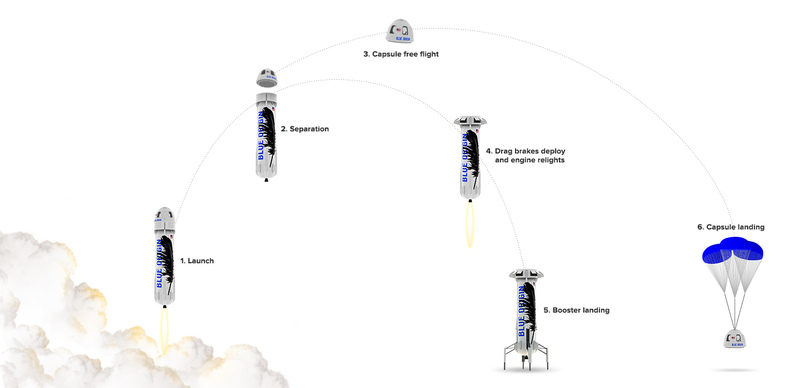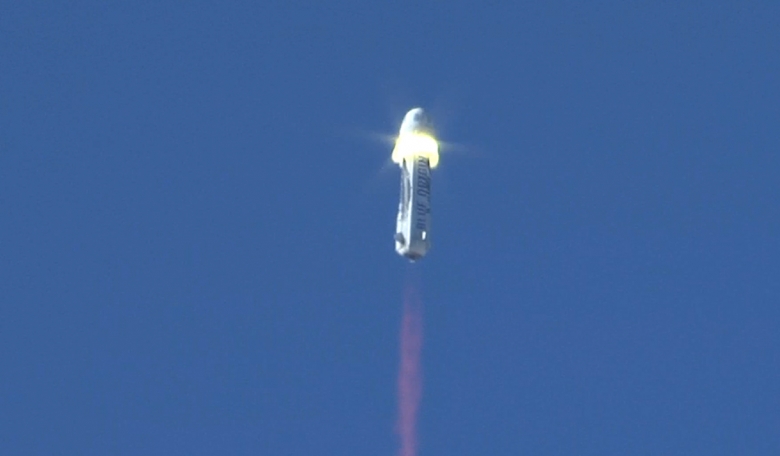Blue Origin has successfully completed
testing of the New Shepard suborbital vehicle abort system. On
October 5
th, 2016, the crew capsule and the propulsion
module had both safely landed at the company's test site in West
Texas, USA.
Although the launch was delayed by over thirty
minutes because of an undisclosed issue with the vehicle, once the
New Shepard vehicle was launched, the test went according to plan.
About 45 seconds after launch, the crew capsule fired its abort
motor, shooting away from the propulsion module and descending under
parachutes. It landed four minutes and 15 seconds after liftoff.

Diagram of the crew capsule and booster landing. Credit: Blue Origin
The main objective of the flight was to test the abort system. According to Ariane Cornell, who hosted the Blue Origin even webcast, ““Today’s mission is totally focused on a successful crew capsule escape with the understanding that the booster will likely be lost.” However, the propulsion module surprised many as it continued on its course and landed successfully and with minimal damage seven and a half minutes after launch.
The test's success is of vital importance in the development of the New Shepard system, which Blue Origin eventually plans to use for space tourism and research. Although there is no schedule of commercial flights yet, the company has already mentioned certain perks for its first customers, such as priority access to tickets for their New Glenn orbital launch system, expected to begin flights by 2020.











